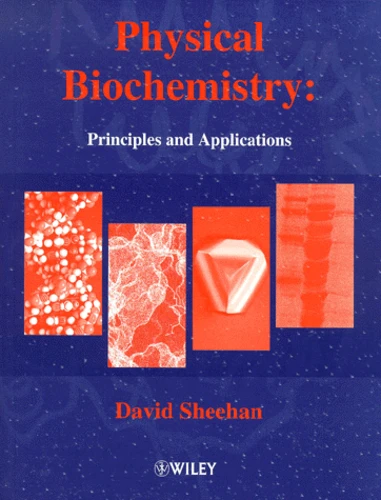Physical Biochemistry. Principles And Applications
Par :Formats :
- Paiement en ligne :
- Livraison à domicile ou en point Mondial Relay indisponible
- Retrait Click and Collect en magasin gratuit
- Nombre de pages349
- PrésentationBroché
- Poids0.875 kg
- Dimensions19,0 cm × 24,6 cm × 2,5 cm
- ISBN0-471-98663-1
- EAN9780471986638
- Date de parution20/04/2000
- ÉditeurWiley
Résumé
Physical Biochemistry: Principles and Applications provides a broad overview of the key techniques currently used to characterise the structure and function of complex biomacromolecules such as proteins and DNA. It bridges the gap between general biochemistry textbooks and the more specialist texts covering individual techniques.
Topics covered include chromatography, spectroscopy, mass spectrometry, electrophoresis, X-ray diffraction, centrifugation and biocalorimetry. New developments are placed in context by describing the physical principles on which they depend, examining the range of biophysical applications most widely used and, emphasising the overall similarities of experimental approach.
Written by a biochemist with extensive teaching experience, the book:
* describes the advantages and disadvantages of each technique and compares one technique to another;
* introduces experimental approaches in a non-mathematical way, using practical examples; and,
* provides a bibliography, including useful web sites, at the end of each chapter.
Physical Biochemistry: Principles and Applications will be invaluable to undergraduates and postgraduates studying biochemistry, molecular biology and related disciplines.
Physical Biochemistry: Principles and Applications provides a broad overview of the key techniques currently used to characterise the structure and function of complex biomacromolecules such as proteins and DNA. It bridges the gap between general biochemistry textbooks and the more specialist texts covering individual techniques.
Topics covered include chromatography, spectroscopy, mass spectrometry, electrophoresis, X-ray diffraction, centrifugation and biocalorimetry. New developments are placed in context by describing the physical principles on which they depend, examining the range of biophysical applications most widely used and, emphasising the overall similarities of experimental approach.
Written by a biochemist with extensive teaching experience, the book:
* describes the advantages and disadvantages of each technique and compares one technique to another;
* introduces experimental approaches in a non-mathematical way, using practical examples; and,
* provides a bibliography, including useful web sites, at the end of each chapter.
Physical Biochemistry: Principles and Applications will be invaluable to undergraduates and postgraduates studying biochemistry, molecular biology and related disciplines.


